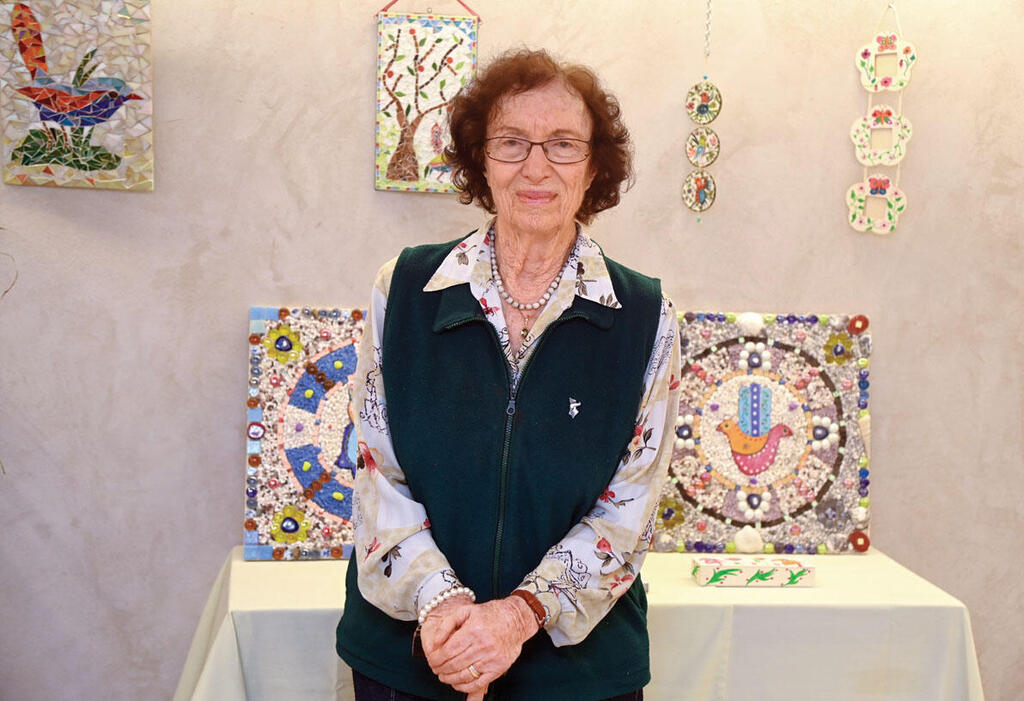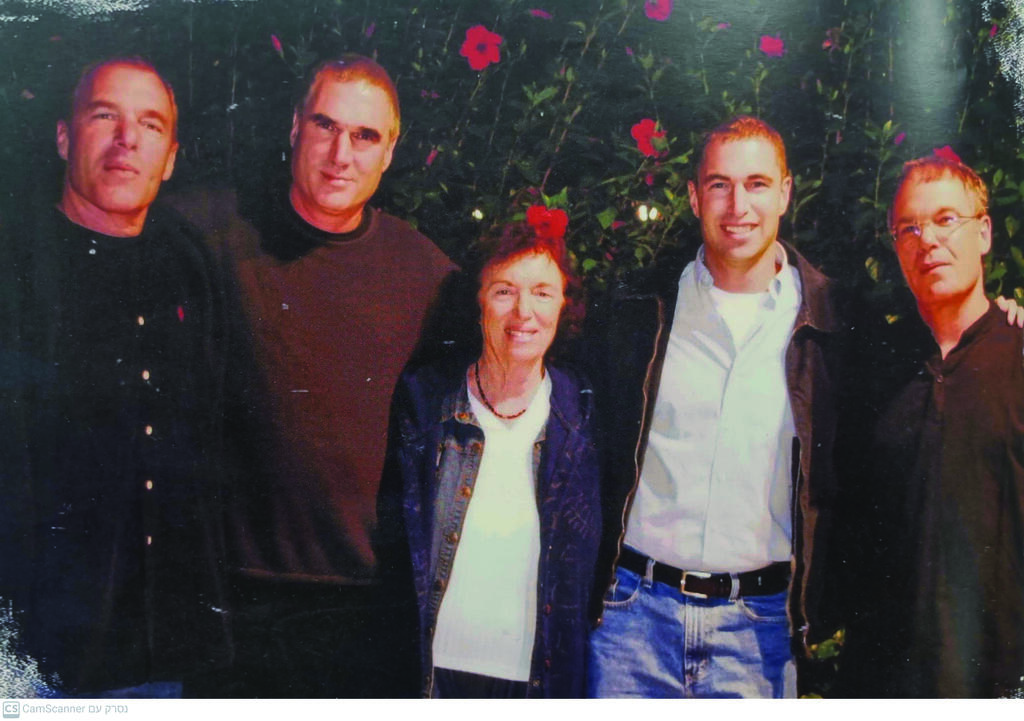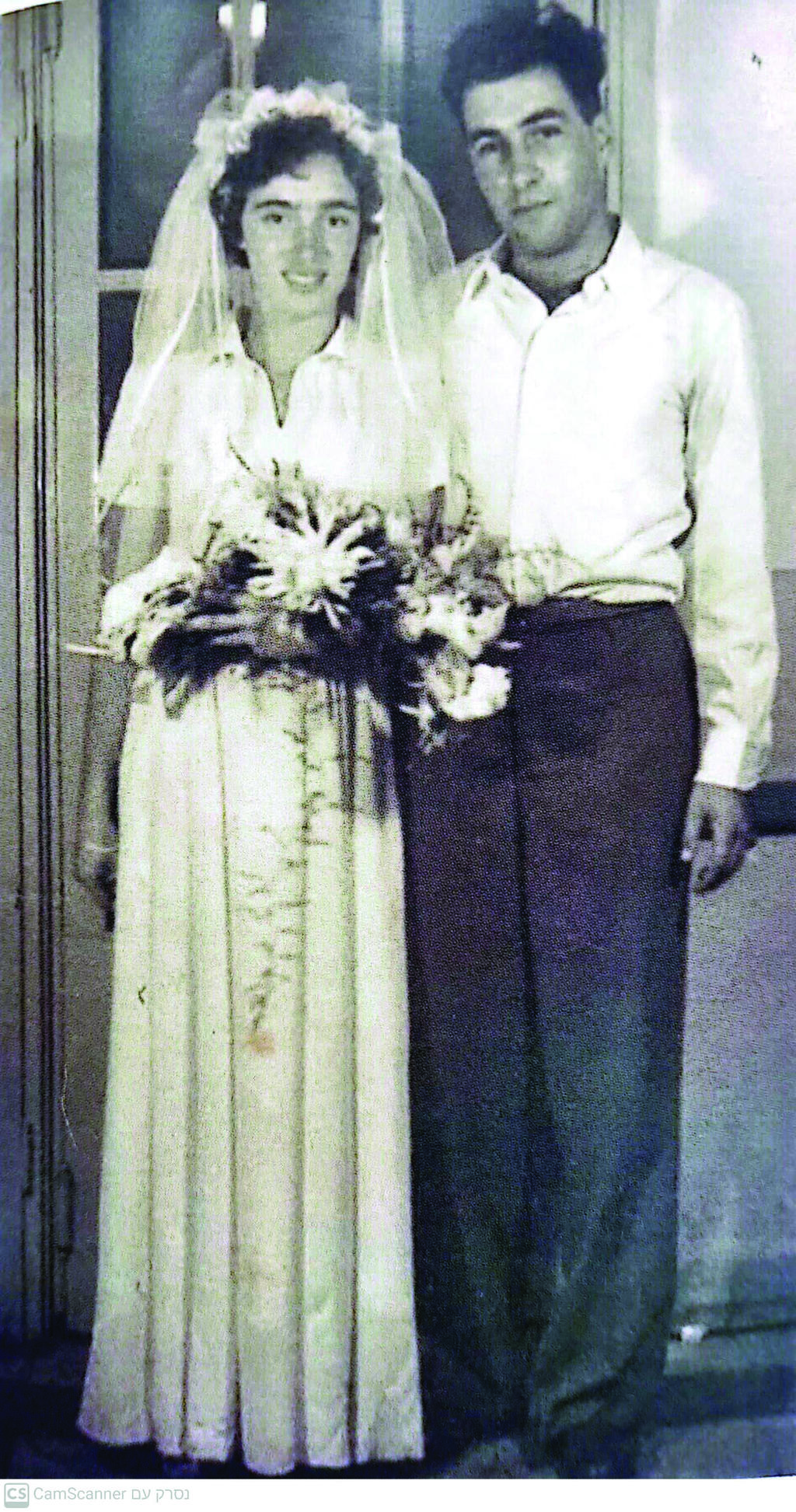This is the story of Hasida Buchswiller, 91 years old, widow, mother of four sons, 14 grandchildren and 8 great-grandchildren. For years she was a teacher and educator at Kibbutz Be'eri. Hasida survived October 7 with her Filipino caregiver, who has since left the country. She recently moved alone to "Beit Belev" in Ramat-HaSharon.
Read more:
"I am a refugee in my country. I was in Be'eri on Black Shabbat and a miracle happened to me and I survived. My four sons left the kibbutz where they were born and raised, each for their own reasons, but two of my adult grandchildren live in the kibbutz and went through this hell like me. Eight of my grandchildren are now serving in the army, five of them are serving in combat units.
When the attack began, I was at the medical center with my Filipino caregiver, Meylin, and the terrorists were inside my house and tried to break into the medical center. My older granddaughter informed me that the handle needed to be held, so Meylin and I held it tightly. We wouldn't have been able to hold on like this for long, fortunately the kibbutz's first responders came to the house, including Major General (res.) Yossi Bachar, a Be'eri resident, who I taught when was in kindergarten 55 years ago. They came to rescue one of the members who was injured on my doorstep. Unfortunately it was too late for him.
The first responders decided that it was a strategic place and positioned themselves at the entrance to my house, because from there you can see the road through which some of the terrorists infiltrated the kibbutz. They surrounded themselves with a lot of pots I had there, so they had good cover and were able to hold them back. The terrorists moved into the adjacent neighborhood, set fire to almost all the houses, and most of the dear people who lived there were murdered, but my house remained standing. Luckily, Meylin was with me, I don't know how I would have gotten through this day without her. She went through the whole nightmare with me, for 13 hours we were locked together and we heard the terrible sounds outside, the shots and everything.
We evacuated from there under fire, in complete darkness, because the electricity had already been cut off since noon. I left without a single belonging, only with a nightgown and flip-flops, they told me that I could not take anything because a whole group of evacuees was waiting and there was not a minute to waste. We arrived at some section of road, we drove on winding roads, and to our astonishment we saw piles of corpses, I don't know if they were terrorists or civilians.
At this point Meylin completely broke down, she was terrified, she almost collapsed on us. She called my daughter-in-law and said she wasn't staying, that she wanted to go back to the Philippines. She stayed with me for a year, in the kibbutz it is customary that those who turn 90 receive the services of a caregiver, and I agreed to be in her care because I wanted my sons to be more relaxed, to know that I was not alone. We left without her passport, so later I asked permission to bring it to her and they agreed to let me retrieve it.
Meylin returned to the Philippines, and I moved to my son's house, near Ashkelon. Then I moved to my younger son's house in Yehud, which would be safer. I did not want to go down to the Dead Sea with the whole kibbutz. I am an elderly woman and it was not suitable for me to live in a hotel. Slowly I began to understand what had happened in my kibbutz, every moment I discovered that another person was killed and another house burned down, our wonderful community, which I was one of its founders, was destroyed.
I was born in Haifa, I studied at the Hebrew Reali School of Haifa, I was in the scouts and I joined the Nahal that went out for training at Kibbutz Maagan-Michael. This was during the period of division in the kibbutz movement, our community was also divided into supporters of Mapai and supporters of Mapam, so it was clear to us that we would not establish a new settlement, rather we will complete existing kibbutzim. The nucleus split: the Mapai people went to Hatzerim, the Mapam people went to Palmachim. I went alone to Be'eri following my love for the man who became my husband, the late Meir Buchswiller, who died 12 years ago. I met him when he came to guide my community on behalf of the kibbutz movement. He was a member of Kibbutz Be'eri, before the draft we corresponded, over time we became a couple, and when I joined him in the kibbutz we got married and had four sons (today they are 70, 66, 61 and 55). At that time it was improper to live with a guy without marriage, and even so it was not easy for my parents that their girl was going to the desert.
There was not a bit of shrubbery here, not a single tree or any sidewalks, we were true pioneers. When I arrived I started working in education with the preschool group, and after a few years, when I already had two sons, I studied teaching. I was a kindergarten teacher for 23 years, and after that I switched to teaching. I taught two youth classes, taught botany for 12 years at Kibbutzim College in Tel Aviv, and also was a principal of a school.
At the age of 70 I retired because I felt that I was getting older and the children were always the same age, the age gap started to bother me. I started doing art, something I always wanted but couldn't, because in the kibbutz you do what the kibbutz needs. First I joined a glass workshop, then a ceramics workshop, then I felt that I had to find something special that I could excel at, and I signed up for a mosaic workshop in Ashkelon. I learned the basic technique and started decorating the whole kibbutz with my mosaics, some were in houses that were destroyed, some are still standing. When one of my sons was restoring houses on an island in Greece, he took mosaics from me, and now Lefkada has 12 of my works in entrances to houses.
A few weeks ago I felt that I could not continue to be a refugee at my son's place, also because he has stairs that are difficult for me, so I asked that they find me my own place, and that's how I ended up at Beit Belev, sheltered housing in Ramat HaSharon. When a person my age is suddenly forced to change his life and his entire past is erased, it's not easy, certainly not at the age of 91. At first it was very strange for me. I lived 72 years in a kibbutz and suddenly I'm in the heart of the city, I don't know how to live in the city. It's a different world from what I know, and I had to build the whole system around myself: doctors, physical therapy. I came alone, I didn't know anyone here, but I knew I had no choice, what happened happened, and if I want to continue living, I have to adjust.
"I built up my house in Be'eri for so many years, it was full of my works and all kinds of collections and art things, and suddenly I have nothing. So as soon as it was possible to enter Be'eri, the children brought me some things that they took off the walls, but the room here is much smaller, there is no room for everything. I find solace in the friends I met, which is very nice and pleasant. I have concerts, lectures, classes, the children live quite close and come to me, and I still have a few childhood friends who live nearby and drop by to visit. I spend a lot of time in the lobby, so I don't feel a severe crisis, The crisis is mainly because of the disaster that happened to us as a kibbutz. Relatively speaking, I think I have reached a place that suits me in terms of the people. I even said that I was ready to teach people mosaics, and they promised to find me a place for it.
Not long ago I went with one of the children to the Hostage Square in Tel Aviv. I met dear friends there, there were hugs, kisses and tears, it was hard to see all those who lost their loved ones. My heart still goes out to Be'eri. A lot of young guys approached me in the square, they said to me, "Hasida, we promise you that Kibbutz Be'eri will be rebuilt, and maybe you will even get to see it and be with us." I wish, that's my prayer. They say it will take three years to rebuild the kibbutz. Well, a person my age can no longer make plans for another three years, so in the meantime I'm here in Ramat HaSharon, enjoying the concerts."
The bottom line: "Our beautiful past was destroyed, the future is unknown, and what remains is to live in the moment."





